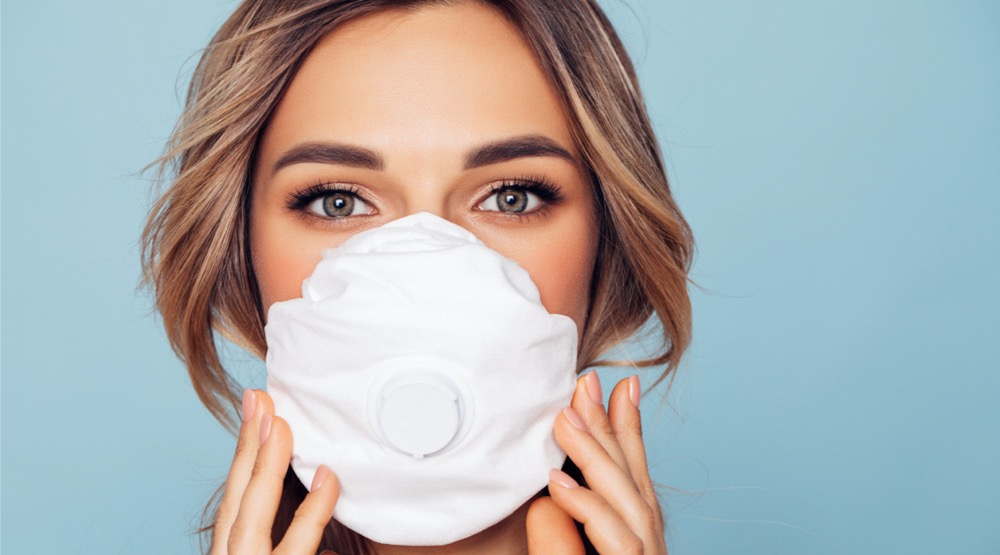As Australians return to everyday life, masks are back in a big way. They’re the safety essential for those wanting to avoid catching COVID and a required for those in the service industry. Sadly, one undesirable effect of mask-wearing is that, ultimately, PPE and cloth masks were designed for safety over flawless complexions. You’r clients will be dealing with more maskne than ever this summer, here’s how you can help them minimise it.
What causes maskne and mask-related skin issues?
Surgical masks contain polypropylene, a plastic polymer that is neither soft nor gentle and some are disinfected with formaldehyde, which can cause allergic reactions. Meanwhile, cotton fabric masks generally cling to the face and are more likely to cause contact irritation (there is also evidence that they are less effective when avoiding the virus). The contact can lead to irritation, clogged pores and sweat rashes (thank you, El Nina for making matters worse). They’re also likely to hold onto detergents and softeners they’re laundered with, which can cause contact reactions.
People with skin conditions like acne, rosacea, atopic dermatitis, sensitivity to humid or dry air and allergies are more likely to experience reactions to mask-wearing. Dermatologist Anna Lien-Lun Chien wrote in Hopkins Medical Journal said perioral dermatitis is a particular concern amongst female mask wearers. “One thing we’re seeing more often these days is perioral dermatitis, a condition similar to rosacea. The area around the mouth, nose and chin is particularly susceptible to this condition.
The solution?
At-home routines are more important than ever, as clients in salon or clinic results can be compromised by facemask wearing.
Increasing one-off-treatment products throughout the week is a great option. A decongesting clay mask for oilier skin types containing bentonite or kaolin and pore-penetrating salicylic acid will provide clients with a deeper clean.
Ensuring you’re not encountering further friction in the evenings is also a good idea. Using silk pillowcases and even silk face masks (these are less effective than N95 and K95 masks, so they are only appropriate for casual use) can reduce wear and tear on delicate facial skin.
If your client is suffering primarily from congestion, retinol is a great option. Building collagen while exfoliating dead skin cells, this ingredient will increase skin resilience to external aggressors while decongesting.
Ask your clients about their daily routine:
Given that masks are non-negotiable check what other products your clients use daily. Particular makeup, skincare and even self-tan products can increase congestion and clog pores. Switching to non-comedogenic sunscreens and foundations is highly recommended. Skincare and makeup aren’t the only culprits – ingredients in certain fake tan products can be seriously comedogenic. Skipping traditional self-tan for lightweight, self-tanning water is a wise move, particularly during the El Nina summer.
Some of the research for this piece was provided by our friends, and derm-approved tanning experts Tanologist.
Read the current issue of our digital magazine here:
- For more news and updates, subscribe to our weekly newsletter
- Follow us on Instagram
- Like us on Facebook
- Join Australia’s largest network of beauty industry professionals on LinkedIn
- Subscribe to our print magazine
Have an idea for a story or want to see a topic covered on our site and in our pages? Get in touch at info@professionalbeauty.com.au.

